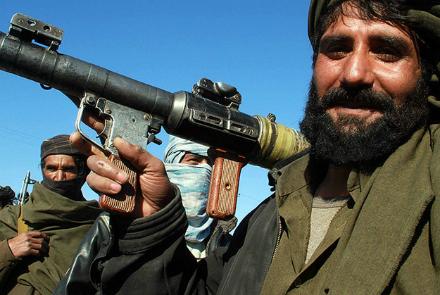A day after the Taliban threatened to pull away from further peace talks with the US, over what the resurgent movement described as “tactical pressure” by Washington, officials in Kabul meanwhile dismissed the group’s new red lines and pressure as a push to score political points in the peace negotiation process.
In a statement released by the group on Tuesday, it said the US had agreed, during a meeting in November in Doha, to bring the issue of US forces withdrawal on the table, but Washington is now trying to sustain its pressure by bringing “new issues” under discussion. The group warned that such an approach could force it to halt all sorts of peace talks with the US.
“As the Unites States agreed during a Doha meeting in the month of November 2018 about discussing the withdrawal of foreign forces from Afghanistan and preventing Afghanistan from being used against other countries in the upcoming meeting, she now is backing away from that agenda and is unilaterally adding new subjects. Hence the Islamic Emirate warns the United States that if the current state of affairs continues and America sustains her insincerity, then the Islamic Emirate will be forced to stall all talks and negotiations until America ends her unlawful pressures and maneuvering and steps forward towards true peace,” reads the statement.
But, officials in the High Peace Council (HPC), a peace body established to persuade the Taliban to end the violence, have said that the Afghan government and the international community were still optimistic about the group endorsing purposeful peace negotiation talks with the Afghan government. but the Taliban have constantly rejected the prospect for engaging in direct talks with the Afghan government.
“Such issues were always seen as a source of pressure on the opponent's side and it is aimed to compel the opponents to give points and backtrack from its position,” said Assadullah Zaeeri, deputy head of the HPC.
The Taliban’s hard line statement coincided with the arrival of the US Special Representative for Afghanistan Reconciliation, Zalmay Khalilzad, from his third multi-nation trip on Afghan peace in Kabul, where he briefed senior Afghan officials about his discussions with regional countries aimed at seeking regional support for ending the 17-long conflict in the war-ravaged country.
“In the meeting which took place last night, Dr Zalmay Khalilzad gave a briefing about his trip to the regional countries including India, China and United Arab Emirates. He described his trip to the region to create regional consensus about the start of the peace process,” said Samim Arif, deputy spokesman to President Ashraf Ghani.
Political analysts meanwhile viewed Taliban’s fresh conditions and pressure from different angles.
“The Taliban in that meeting (Abu Dhabi meeting which took place in December) had said that they will hold consultations with their leaders that no threat will be posed from Afghanistan against other countries. Khalilzad also said that he will hold consultations with the Americans and will seek their (US) agreement about their withdrawal from Afghanistan. But at the Abu Dhabi meeting they (US) raised the issue of a six months' truce and changed the agenda of the meeting,” said Sayed Akbar Agha, leader of Leader of Jaish-al Muslimeen faction of the Taliban.
“Khalilzad was expected to visit Pakistan and the Taliban were supposed to meet Khalilzad under Pakistani pressure, but the Taliban rejected it,” said political analyst, Nazar Mohammad Mutmaeen.
Close aides to the Taliban have said that the detention of Hafez Mohibullah in the Pakistani city of Peshwar was also an attempt to put pressure on the Taliban amid the peace talks.
Mohibullah served as religious affairs minister when the Taliban were ruling Afghanistan before 2001. But there was no immediate response from authorities in Pakistan about the detention.


